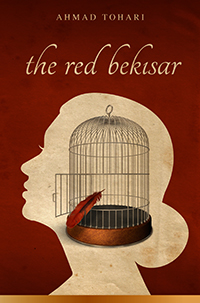Reviews
Laurie J. Sears, Professor of History, University of Washington:
The Red Bekisar tells a story of race, class, and gender in 1960s Indonesia. In linking the rural and urban, Tohari shows the corruption of wealthy elites allowed to pursue their lust for money. The translation flows elegantly while staying close to Tohari’s lyrical prose about the slowly disappearing beauty of Javanese village life and the surrounding nature, as well as captures his sense of nostalgia and sadness.
==================
Sapardi Djoko Damono, Indonesian poet and literary critic:
Exploiting the factor of chance, Ahmad Tohari builds a narrative about destiny that sums up the intricate relations of social function and class in the intersection between the village and the city.
==================
Kadek Sonia Piscayanti, English Education Department, Ganesha University of Education, Bali, Indonesia:
Tohari’s vivid portrayal of Lasi shows her twisted conflicts and will touch readers’ hearts as they follow her on an absurd journey. The Red Bekisar is a challenging novel to translate yet Nurhayat Indriyatno Mohamed has successfully transferred the feelings evoked by the Javanese landscape and human behavior into English.
==================
Gayatri Devi – Lockhaven University in the November 2015 issue of World Literature today::
http://www.worldliteraturetoday.org/2015/november/red-bekisar-ahmad-tohari
==================





